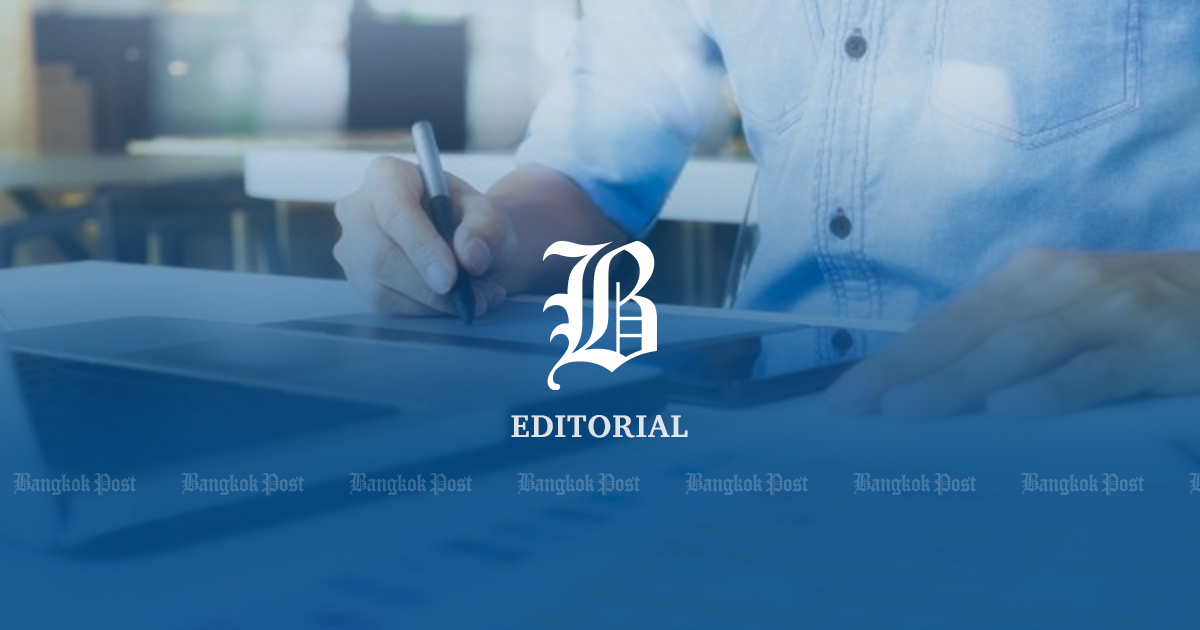
Jan 1 was the first day the ban on four types of plastic waste came into effect, which was in line with the cabinet resolution made in February last year. The ban is just one move under a 20-year plan between 2018-2037 called the "Roadmap on Plastic Waste Management".
Under the ban, plastic bags of less than 36 microns in thickness (widely known as single-use plastic bags); polystyrene-made food containers; plastic cups of less than 100 microns in thickness and plastic straws are supposed to be prohibited.
Despite Environment Minister Varawut Silpa-archa reportedly saying in a press briefing on Dec 18 that the government will not postpone the ban, the government has been using the terms "reduce" and "ban", suggesting that it is enforcing a watered-down version of the policy.
That is not a good sign at all because the amount of waste -- especially plastic rubbish -- has increased in the past two years under the new normal posed by the Covid-19 pandemic. The Bangkok Metropolitan Administration's (BMA) Department of Environment said the daily amount of plastic waste collected in Bangkok has increased by about 10% to 25% in a single year.
While it is understandable that the government is reluctant to add a burden to food shops and fresh market vendors and plastic producers, the government cannot afford to be complacent. It should not use the Covid pandemic as an excuse to compromise on its environmental policy.
Indeed, countries around the world progressed their waste management plans during the pandemic. For example, France, which has seen Covid cases skyrocket from last month, has banned plastic packaging for most fruit and vegetables since New Year's day, a move showing the country's commitment to phasing out single-use plastic bags by 2040.
The Thai government must be vigilant about plastic waste. Authorities can enforce the ban right away at department stores and large retailers, which since 2019 reduced the use of plastic bags. However, the environment ministry must provide support and incentives to vendors, consumers and members of the private sector to reduce plastic bag consumption. Meanwhile, municipal authorities can provide cloth bags and reusable straws or food containers to students and communities.
The government has done a remarkable job in reducing the use of plastic bags. Its campaign, known as "Every Day Say No to Plastic Bags" has seen a collaboration between the ministry and 75 businesses since 2018 to help reduce single-use plastic bags by 2 billion in one year. It would be a pity if the government refuses to push harder and aim higher to achieve environmental goals.
The ban is vital for both environmental and economic policies. For the first, it is no secret that Thailand has been drowning in a whirlpool of waste. According to PCD data in 2020, Thai consumers get through 700,000 tonnes of polystyrene, used for food containers; 1.72 million tonnes of plastic cups and straws; and 1.17 million tonnes of plastic bags per year. It is shocking to realise that Thais consume 100 million plastic straws a day as the kingdom's recycling rate is only 25%.
The government cannot take the plastic rubbish issue lightly. It is noteworthy that Prime Minister Prayut Chan-o-cha has trumpeted a plan for the government to shift to the Bio-Circular-Green (BCG) Economic Model, which aims to make recycling and environmental protection essential.
It is now time for the government to prove that its BCG policy and plastic waste roadmap are not just lip service.
